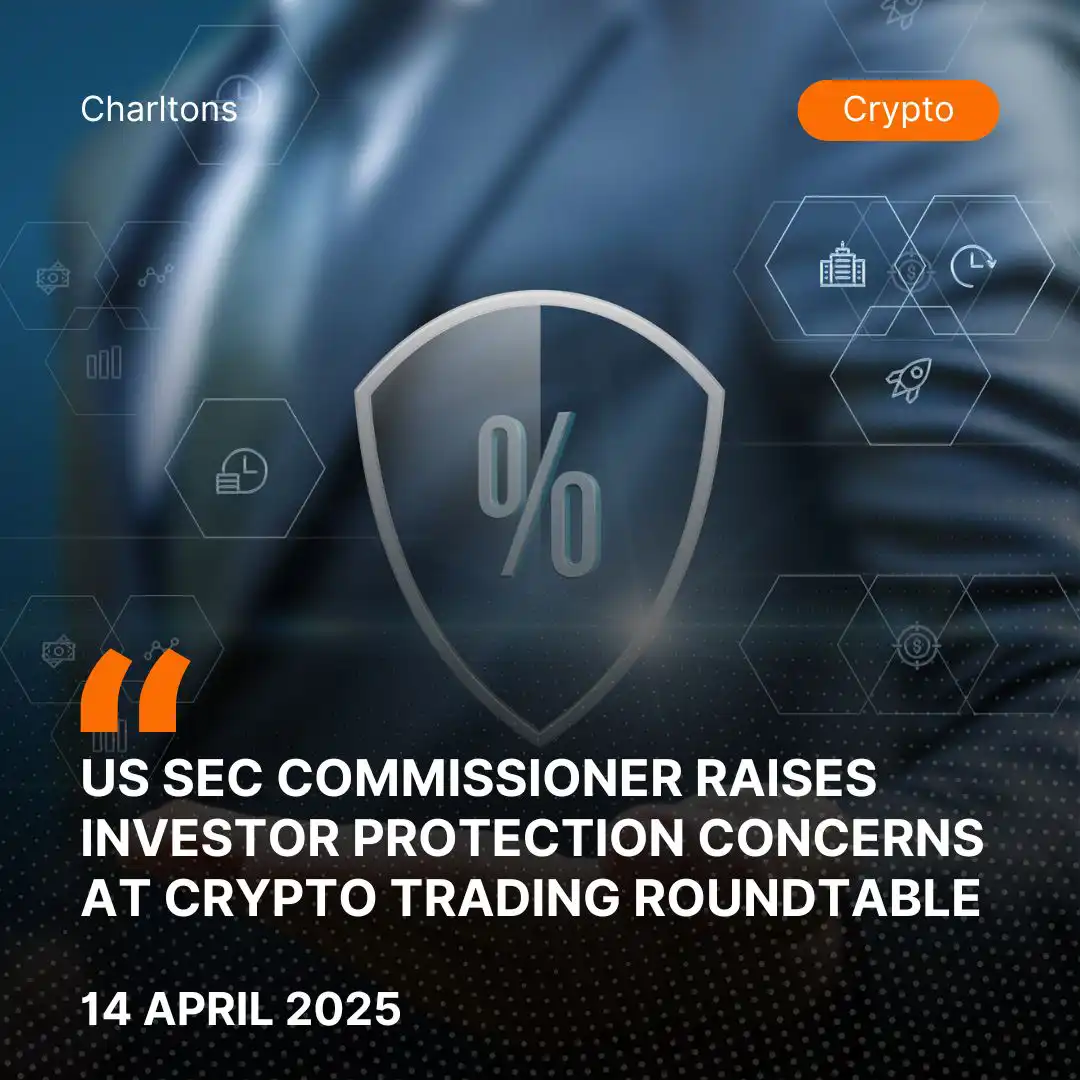
On 11 April 2025, United States Securities and Exchange Commission (US SEC) Commissioner Caroline A. Crenshaw delivered remarks at the second session of the Crypto Task Force Roundtable titled “Between a Block and a Hard Place: Tailoring Regulation for Crypto Trading.” Framing the session in terms of its implications for investor protection and regulatory adaptation, Commissioner Crenshaw voiced concern over the structural vulnerabilities in crypto trading platforms, particularly in how these platforms interact with retail investors and manage core trading functions without formal oversight. Commissioner Caroline A. Crenshaw’s remarks focused on bridging the regulatory disconnect between investor expectations and the operational reality of crypto asset trading platforms. Emphasising the multi-functional roles played by these platforms including: brokerage, custody, and clearing; Crenshaw stated that, unlike their traditional finance counterparts, many of these entities operate outside US SEC registration, raising serious concerns over investor protection, conflict of interest, and systemic risk. Her speech underlined the urgent need for tailored regulation that ensures parity with existing financial protections while addressing the unique risks of decentralised trading.
Commissioner Caroline A. Crenshaw contextualised her remarks through the lens of a typical retail investor, stating: “What protections do they naturally assume they have based on crypto companies’ marketing and their experience with more traditional investments? Do they actually have the benefit of those protections in practice? In my view, they should.” She warned of a disconcerting mismatch between assumed protections and actual legal safeguards, particularly in relation to asset custody, bankruptcy exposure, and absence of insurance protections.
Citing recent academic commentary and investor alerts issued by the United States SEC, she noted that investors “didn’t realise that their crypto may be held in a single wallet controlled solely by the exchange,” and further, that “custodially held crypto would be treated as property of the exchange in a bankruptcy proceeding.” These scenarios, she warned, compound the risk to both individual investors and the wider market.
Addressing the multi-role nature of crypto platforms, Commissioner Crenshaw stated that many such entities operate “under one roof,” fulfilling critical roles such as brokerage, clearing, and custody, but often without regulatory approval or oversight. She emphasised: “Each of these functions is vitally important to maintaining the safety and integrity of assets entrusted by investors,” pointing out that in traditional finance these roles are separated to avoid conflicts of interest.
The regulatory gap, she argued, arises because “many of these entities are not registered with any regulator (not the US SEC, not the states, and not an SRO),” leaving investors vulnerable to significant risks, including systemic failure and loss of funds in the absence of SIPC or FDIC protections.
Commissioner Crenshaw’s concluding remarks were a call to collaborative action. She posed critical regulatory questions for roundtable discussion, including:
- How should the US SEC approach the question of crypto exchange registration?
- How can on- and off-chain transactions meet broker-dealers’ best execution obligations?
- What measures can mitigate custody risks and embedded conflicts of interest?
She affirmed: “Together, let’s explore answers to these difficult questions that can both protect investors and markets.”
References
[1] S.E.C. Office of Investor Education and Advocacy, Exercise Caution with Crypto Asset Securities: Investor Alert (23 March 2023).
[2] Adam Levitin, Not Your Keys, Not Your Coins: Unpriced Credit Risk in Cryptocurrency, 101 Tex. L. Rev. 877 (2023).





